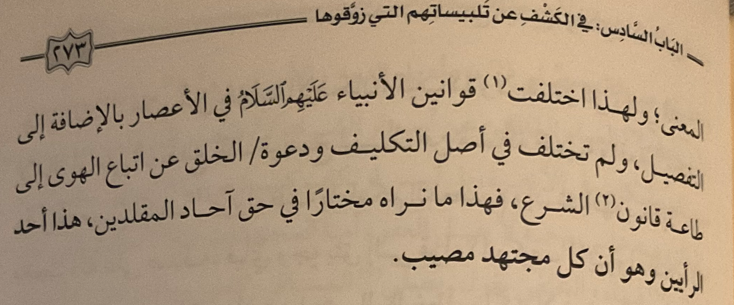Imam al-Ghazali (رحمه الله) writes:
As for giving a muqallid the option to choose between the imams (and follow any view he desires), some have opined this. (1) However, the preferred (viewpoint) according to us is that it is obligatory for (the muqallid) to follow the (imam) he believes to be the best and most learned amongst the group (of mujtahids).
He will base his belief (in the superiority of the imam he follows) on either imitation of his parents based on what he heard (from them); a nontechnical research into the conditions of the imam; or what he heard from the jurists. In essence, he will gain a strong inclination from these sources. He must follow his own inclination (on which is the superior mujtahid imam) just as the mujtahid must follow his own inclination (on which view he upholds). (2)
This philosophy is universal to revealed law: namely, that the revealed law comprises of a specific benefit in each issue and an overall benefit in general.
As for the specific (benefit), it is what the evidence and wisdom of each ruling reveals.
As for the overall benefit, it is that every accountable person falls under a specific legal system, comprising the commands of revealed law, in all his movements, statements and beliefs, so he is not akin to an unrestrained beast acting on its whims. The result is that he is restrained by the rein of taqwa and the revealed law’s disciplining and dividing (things) into those things it gives free rein in and those things it prevents him from. He thus advances where the revealed law has given free rein and holds back where it has prevented (something). He does not take his desires as his god nor follow his whims therein.
If we give a muqallid the option to pick the viewpoints of the imams that are most pleasing to him, the opinion-holders will become erratic for him, so no recourse will remain for him in choosing (what to follow) besides his desire.
This opposes the overall purpose (of the revealed law). Hence, it is for this reason that we deem it (necessary) to confine him within defined parameters and regulate him to a set criterion, namely the view of a single person.
This is why the legislations of the prophets (upon them peace) over (different) periods differed regarding the details. They did not differ (however) in the core aspect of holding (people) responsible (to a specific law) and calling them away from following their desires and towards obedience to the revealed law.
This is what we consider to be the preferred viewpoint with respect to individual muqallids. (3) (Fada’ih al-Batiniyyah, Dar Faris, pp.271-3)
(1) In Ihya’ ‘Ulum al-Din, Imam al-Ghazali clarifies that this is an invalid view. (Ihya’ ‘Ulum al-Din, Dar al-Minhaj, 4:603)
(2) In other words, once the mujtahid comes to a conclusion in a disputed issue, he cannot follow the conclusion of another mujtahid that differs from his own.
(3) Imam al-Ghazali reiterates the same point in his later work, al-Mustasfa. (al-Mustasfa, Mu’assasat al-Risalah, 2:469) His discussion applies to the situation after madhhabs of fiqh were codified and began to be widely-followed.


